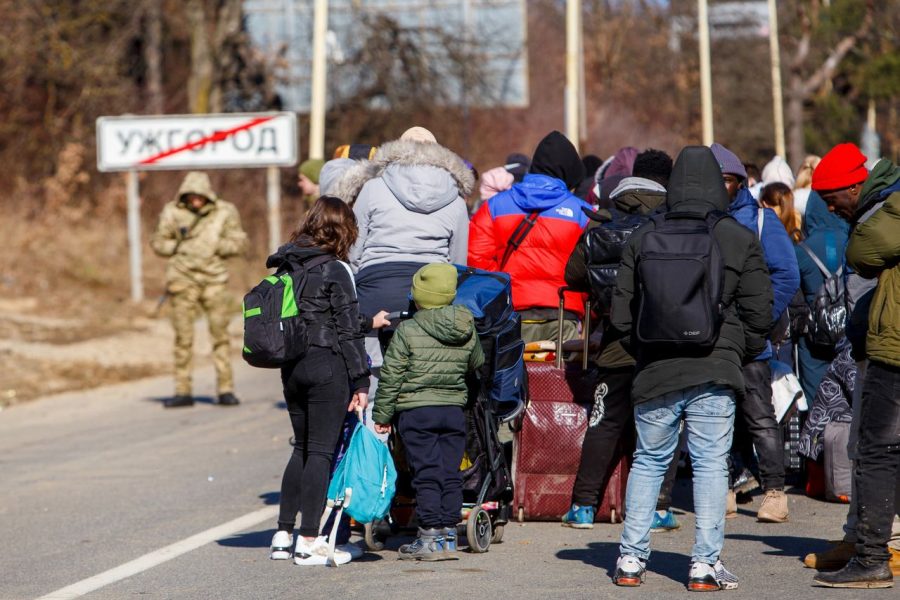Why Gas Prices Are Climbing: Everything You Need to Know About the Russia/Ukraine Conflict
We all see current media sources covered in news about the Ukraine conflict which is only escalating from Russian aggression, but do any of us really know the deep-rooted history behind this? How does this affect our daily lives with gas prices rising drastically? The Russia-Ukraine conflict is about more than just the future of Ukraine; it’s about Russia’s not-so-valiant attempts to reassert its influence in both Europe and the world.
It all began after the breakup of the Soviet Union in the ‘90s, specifically when Ukraine finally achieved its independence. Throughout the years, Ukraine has been gradually moving west towards both the European Union and the North American Treaty Organization (NATO). Vladimir Putin, the Russian president, aims to prevent Ukraine from moving towards this in fear that if most neighboring countries ally with the west and NATO, Russia would have no military or political advantage. In March and February of 2014, Russia violated Ukraine’s sovereignty and annexed Crimea, former Ukrainian territory. The goal was to reclaim the land that had been gifted to Ukraine from former Russian President, Nikita Khrushchev, for the unification of Ukraine and Russia. Controlling Crimea was a tactic that allowed Russia to have a buffer zone, providing Putin with the comfort that Russia could never be attacked across the land. This action, however, triggered a seperatist rebellion which claimed 14,000 lives in a devastating war. Putin’s fixation on restoring the Russian empire to the state of its old glory is why Ukraine is so central to his vision.
Now how does any of this relate to gas? The prices at the pump have increased dramatically since the start of the conflict, but these prices were rising even before the Russian conflict was thrown into the mix. President Biden responded to the crisis in Ukraine by imposing severe and restrictive sanctions on Russia which will cripple their economy in the long run. The sanctions placed on the Russian energy sector means that many Western energy companies such as ExxonMobil have cut ties with Russia and have limited their imports. As a nation, we are the world’s largest oil producer, but we are also the largest oil consumer. We cannot meet the staggering demand with domestic crude oil alone. With talk of a complete ban on Russian oil, U.S. officials have been trying to find another energy source that could meet these demands but many available sources, such as Venezuela and Mexico are limited. As the global supply decreases, global prices will continue to rise. The Russian government has shown few signs of halting their aggression and only time will tell when the economy will stabilize.






